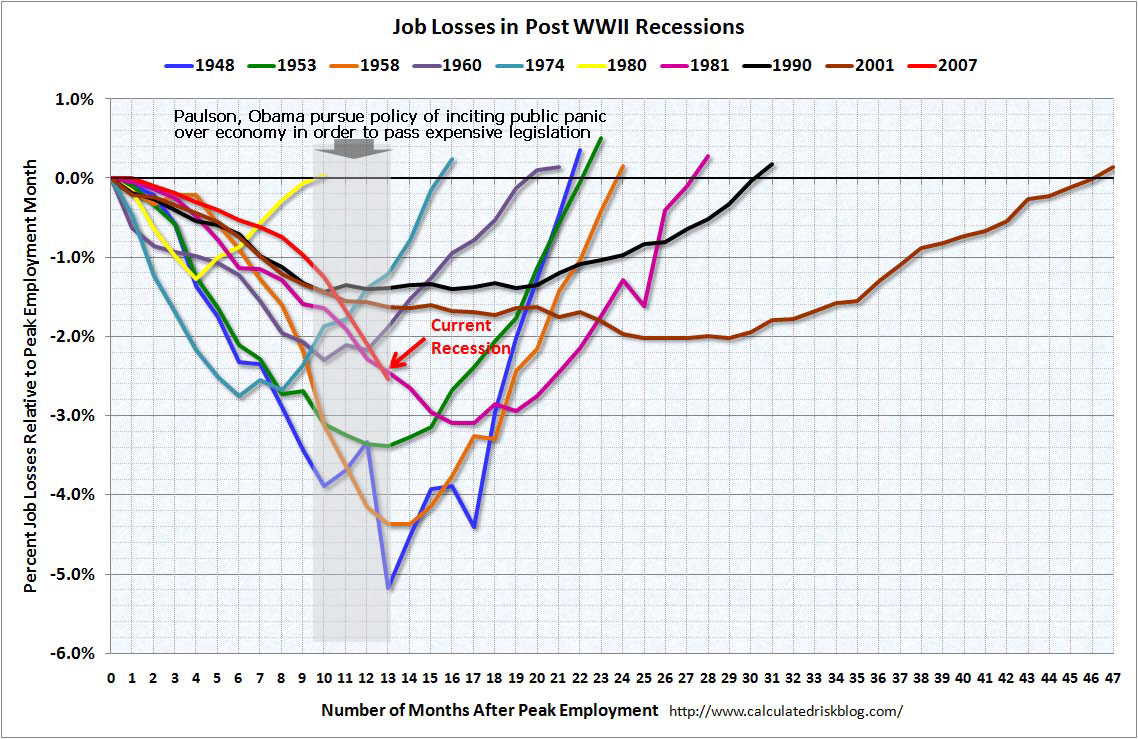Geithner Asks For Power To “Unwind” Financial Companies
President Obama and Treasury Secretary Tim Geithner have asked Congress to grant the Treasury Secretary the power to “unwind” financial companies that pose systematic risks to our economy.
But, the government already has the power to unwind large insolvent companies which pose systematic risks to our economy. Large financial–or any other type of companies–can be unwound through bankruptcy proceedings. Bankruptcy courts can order the liquidation of a company and the sale of its assets. There is no need to grant this power to the Treasury Secretary, or President Obama, or any one man.
Rather than bailing out companies, and then bailing out our bailouts like we have done with AIG and are about to do with GM and Chrysler, we should send these failed companies to bankruptcy courts and sell of their assets. Rather than pumping TRILLIONS of dollars into failed enterprises, we should have quickly auctioned off these companies, their properties and assets, and anything else related to them. Yes, these companies and their assets and receivables may have only sold for pennies on the dollar, but it would have been done without taxpayer money and would have allowed for the quick return to profits (as the purchasing price would have been low enough so that the purchaser could anticipate earning a profit).
You may be saying to yourself that I have said this on previous posts countless times. You are right. But, our government is not learning from these recent mistakes. Instead of learning, we are repeating them over and over again, making things worse and worse and then blaming capitalism for the failures of the government. For a man who repeatedly criticized President Bush for “staying the course,” Mr. Obama has sure picked a terrible course to stay. So, for as long as Congress and President Obama continue to repeat their mistakes over and over again, I will continue to repeat myself over and over again, hoping that somehow my words reach their eyes and spark a change of direction.
But, back to the new proposal. Look at it like this: the government now controls most of the banking system. Imagine that it creates new “recommended” lending standards to support an administration program–expansion of loans to increase home ownership for example. If a company that is not owned by the government were to decide that these new government “recommendations” are too risky and are not a good investment and decided not to participate, the government could effectively force the company to comply by threatening to “wind it down.”
This is a dangerous, undemocratic, and authoritarian proposal which gives the Federal Government way too much control over the financial industry.
Americanly Yours,
Phred Barnet
Please help me promote my site:





